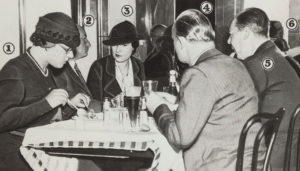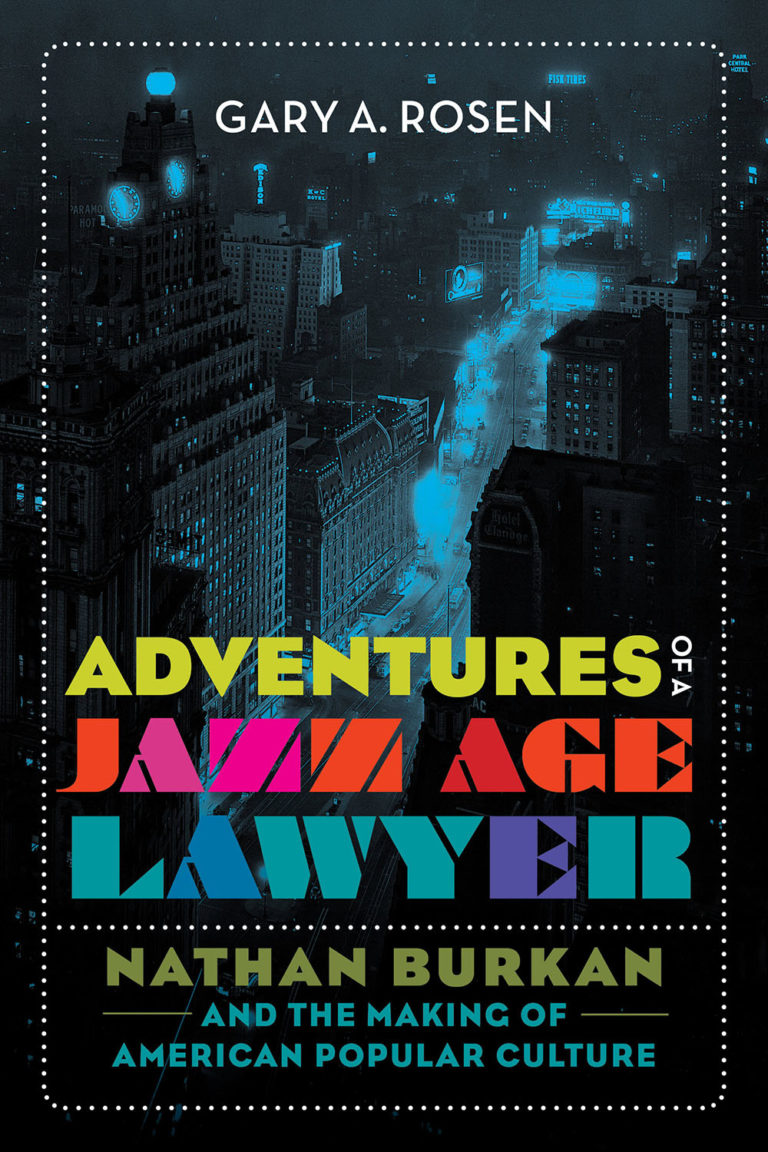Blue Bloods Meet the Hoi Polloi: Nathan Burkan and Gloria Vanderbilt
Burkan’s lengthy, grating cross-examinations of Smythe’s witnesses became a familiar feature of the trial. Burkan, one reporter wrote,
is a dynamo of energy on cross-examination. . . He barks out his questions, stands impatiently when replies are tardy. Mild sarcasm is a weapon he frequently employs. . . Rapidly he changes from one mode of questioning to another, suddenly dropping a point almost established. Later he will score with another question that may catch the witness unawares.
When Smythe complained about Burkan’s treatment of his witnesses, Justice Carew dryly observed: “He is a forcible gentleman. He has quite a lot of energy. He does not tire very easily.” Near the end of her many hours of cross-examination, Laura Morgan wailed: “I did not know that I was going to be called to go through this Calvary on earth!”
The risks inherent in Burkan’s approach were revealed to the whole world when Smythe called a surprise witness. Maria Caillot had been Gloria’s personal maid from 1928 to mid-1933. A petite French brunette, she described in heavily accented English, as Julia McCarthy reported:
the Paris that Mrs. Gloria Morgan Vanderbilt knew—where three jazz bands in relays tooted all night for a handful of guests in the drawing-room while rats scurried about below; where the boudoir of her cold, ancient dwelling held seven hot modern books, and where the sun rose merely to mark a party’s end.
She could recall the title of one of Gloria’s bed table books: The Beautiful Flagellants of New York. Caillot introduced the name A.C. Blumenthal into the case, testifying that he became a daily visitor to Gloria’s New York home in 1933. She also testified that Gloria had rushed back to Europe after Little Gloria’s tonsillectomy in 1932 not to “close the Paris house,” but to summer in Cannes with the Marchioness Nada Milford-Haven.
Burkan chipped away at her testimony on cross, but then walked into a trap that Smythe had set. After getting Caillot to concede that the Marchioness Milford-Haven was “a fine decent lovely lady,” Burkan turned to Gloria and Nada’s summer holiday in Cannes. Caillot conceded that she had not seen Gloria running around there with any men. That would have been a fine note on which to end that line of questioning, but Burkan continued: “You saw nothing improper in her conduct the entire two months, isn’t that true?”
“Yes, I remember something, it seems to me very funny.”
Barely looking up from his notes, Burkan asked Caillot what it was that she had found so amusing. Serving breakfast one morning, she said, she found Mrs. Vanderbilt in bed reading the newspaper. “And there was Lady Milford-Haven beside the bed with her arm around Mrs. Vanderbilt’s neck, kissing her just like a lover.”
Recalling that exchange a few years later, after attending Burkan’s funeral, Gloria thought that “his face in death looked no more stricken and still than it had at this moment.”
Burkan had fallen for one of the oldest courtroom tricks in the book, and he knew it instantly. There was no doubt on Gloria’s side of the courtroom that Smythe had coached Caill ot to blurt this story out on cross-examination. Doing it that way magnified its dramatic impact and allowed Gertrude and her lawyers to distance themselves from unseemly mud-slinging. Burkan instinctively tried to recover by highlighting the other side’s gamesmanship: “So you told Mr. Smythe about this and he forgot to ask you when he was questioning you before?”
ot to blurt this story out on cross-examination. Doing it that way magnified its dramatic impact and allowed Gertrude and her lawyers to distance themselves from unseemly mud-slinging. Burkan instinctively tried to recover by highlighting the other side’s gamesmanship: “So you told Mr. Smythe about this and he forgot to ask you when he was questioning you before?”
Smythe played innocent. He didn’t forget, he said. “I tried to keep away from that kind of thing.”
It was a bracing moment for Burkan; all at once he could apprehend the lengths to which Gertrude Whitney was prepared to have her proxies go to win, and how little he really knew about what embarrassments lay ahead.
Carew gaveled the courtroom to order and had it cleared of press and spectators. He decided to close further proceedings to the public and placed a gag order on the parties and counsel. Reporters would from now on have to rely on bowdlerized summaries of the testimony read out twice daily by Justice Carew, and on the “warfare in haughty pantomime” they could observe through two small panes of glass in the courtroom doors.
